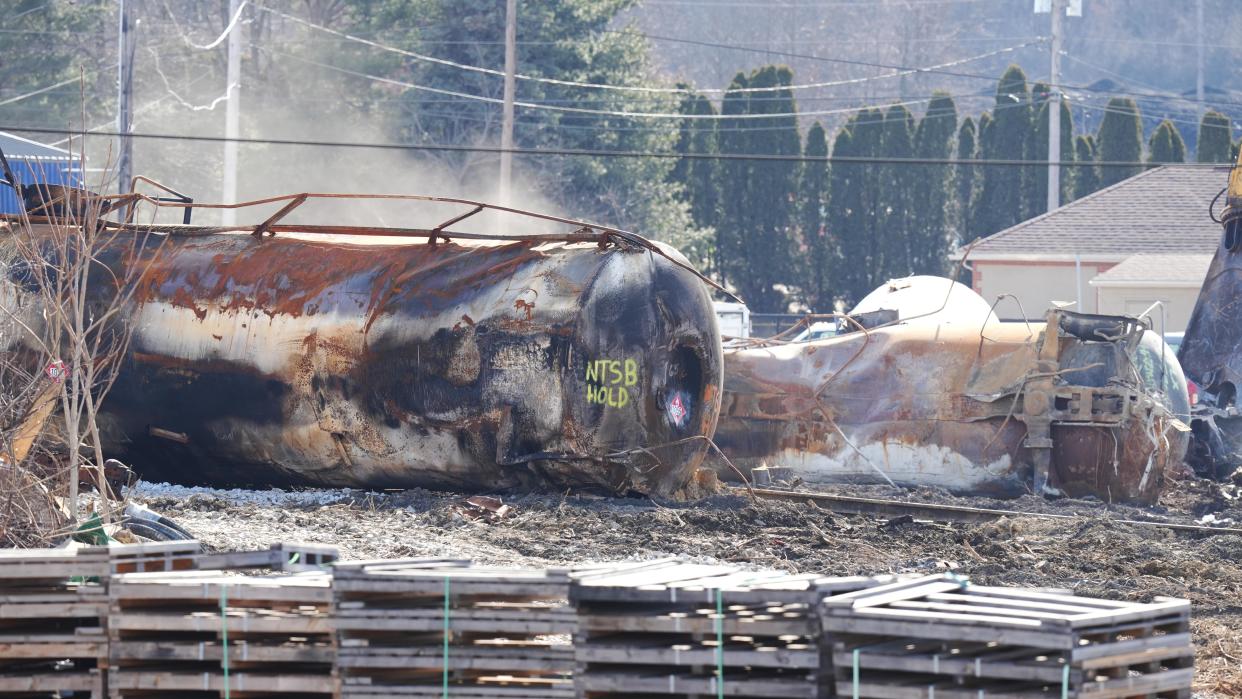Opinion: Trust eroded by East Palestine disaster. Independent investigation needed.

It has been nearly two months since a Norfolk-Southern train derailed in East Palestine — not enough time to know the full reach and repercussions of the toxic chemicals on the surrounding community. But enough time to recognize that the initial response was inadequate.
We must collectively find solutions for the future that do a better job of protecting people, their properties and their livelihoods.
Lawmakers: I pray 'our families haven’t been poisoned 'black plume of burning chemicals'
The Ohio Environmental Council has supported on-the-ground partners in East Palestine to address residents’ needs. We have been in contact with scientists, emergency response experts and policymakers and there is broad agreement that the state should be correcting gaps in the policies, rules and laws that allowed this crisis to play out in the way it has.
We are still in the acute stages of this crisis, as the people of East Palestine know all too well.
'This was an epic disaster': Ohio sues Norfolk Southern over East Palestine train derailment
Because Norfolk Southern — the company whose lax oversight caused the derailment in the first place—has not been transparent in sharing its role in the decision-making process, we do not know if it was acting to protect the people of East Palestine or its own bottom line.
This includes the decision to do a controlled vent and burn of vinyl chloride.

That is why the Ohio Environmental Council is calling for an independent, transparent investigation into the first minutes, hours, days and weeks following the derailment.
Such an investigation should identify how Norfolk Southern made the choices it did and whether those choices were made with public health as the primary goal.
This guest column is available free:Support the exchange of local and state ideas by subscribing to the Columbus Dispatch.
It should also illuminate Norfolk Southern’s relationship to and deference to the “unified command structure” including the fire chief, federal and state agencies and other local emergency response professionals.
Once the investigation is complete, its results should be made public. Doing so would give the people of East Palestine a clear accounting of the choices that will affect their lives for years to come and will help all Ohioans understand how such decisions might affect them down the road.
And, importantly, it will help rebuild trust in Ohio’s government. That trust has been eroded by this disaster, in part because people believe their government is more concerned with protecting a powerful company than with protecting East Palestine residents’ health.
The Ohio EPA has an extremely important role to play in environmental disasters like the one in East Palestine. To be the most effective, the agency needs to be resourced appropriately and given the authority to manage disasters that threaten air, water, soil, and, by extension, human health.
Our analysis has shown that, when adjusted for inflation, the Ohio EPA has lost about a third of its funding over the last 20 years. That defunding has significant and real implications: It means fewer staff available to respond to emergencies, less financial support for communities affected by a disaster like this, and limited access to technology to test air, water, and soil for the kinds of toxins that can have lasting and significant effects on human health.
Gov. Mike DeWine’s proposed budget, released just days before the East Palestine derailment, includes $8.9 million for emergency response, investigations and enforcement related to the unintended release of hazardous materials, petroleum and other harmful substances. This is clearly not enough.
The Ohio Environmental Council strongly encourages lawmakers to increase that allocation as they work through the budget process.
Carrying out an independent investigation and increasing the state’s emergency response capacity will begin to rebuild Ohioans’ trust in their government. And it will put Ohio in a position to more immediately address the next crisis — whether caused by train derailment or something else.
Carol Kauffman is executive director of the Ohio Environmental Council.
This article originally appeared on The Columbus Dispatch: East Palestine derailment: Why should is an independent investigation needed?

